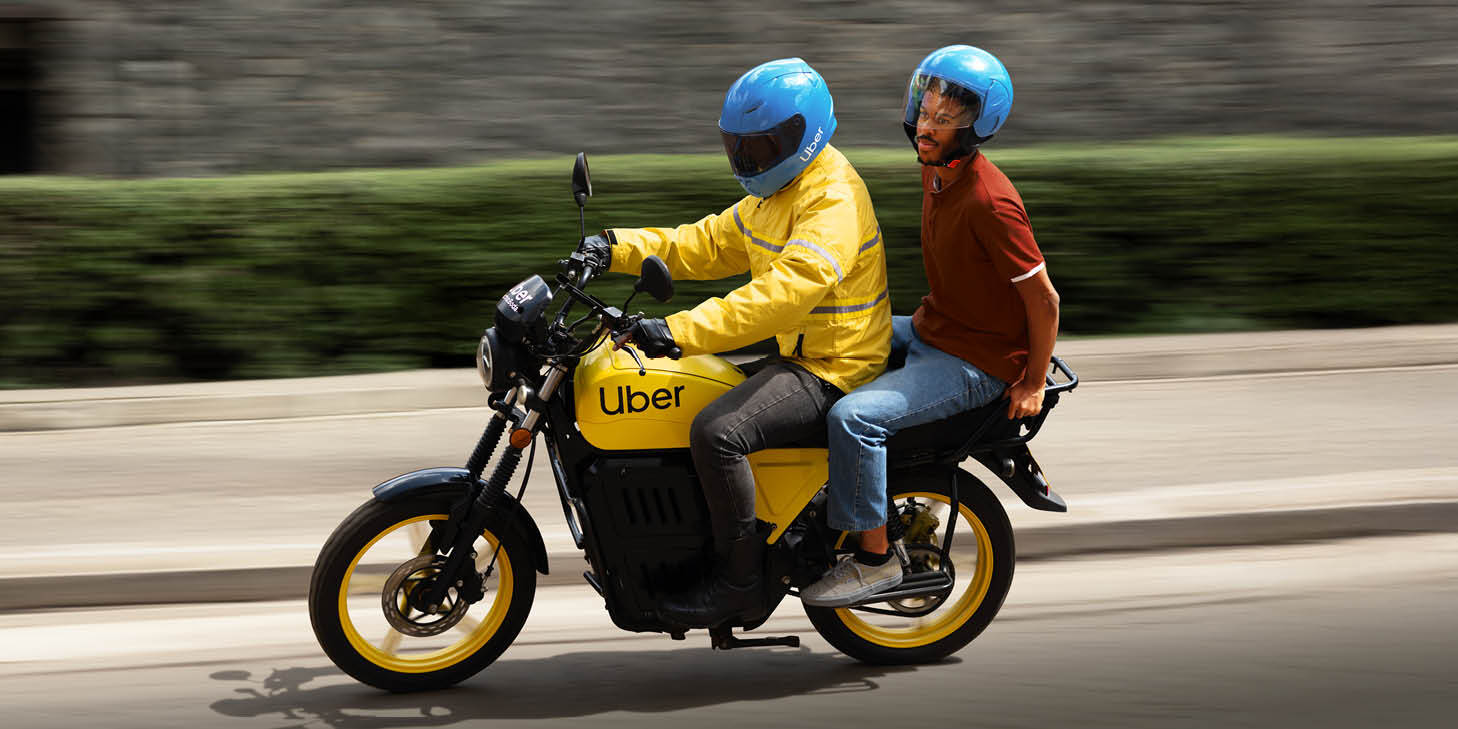
Uber has unveiled new safety and sustainability measures for its motorcycle ride-hailing service, Uber Boda, aimed at redefining standards in Kenya’s boda boda sector.
The service now integrates advanced technologies, including GPS
tracking, real-time trip monitoring, and an emergency assistance button,
alongside stringent driver verification and professional training programs.
These features are designed to enhance commuter confidence and safety
in a sector that moves millions daily.
“Safety has always been at the core of everything we do at Uber,” Uber’s Head of Communications for Sub-Saharan Africa Cassie Jaganyi said.
“Our
technology and training standards set a new benchmark for motorcycle taxi
safety in Kenya, ensuring drivers and riders travel with confidence,” Jaganyi said.
Uber Boda's drivers undergo extensive background checks and receive professional training focused on safe riding practices and customer service.
For added security, every Uber Boda trip is tracked via GPS in real-time from
start to finish, providing a digital footprint.
Riders are empowered with the Share My Trip feature, allowing them to
easily share their trip details, including their route and estimated time of
arrival, with trusted contacts for added peace of mind.
In instances where immediate assistance is needed, an in-app emergency button provides a direct link to emergency services.
Complementing these safety
measures, transparent pricing with upfront fares eliminates haggling, ensuring
clarity and reducing potential disputes for a stress-free experience.
Additionally, Uber Boda has partnered with Greenwheels Africa to integrate electric motorcycles into its fleet.
This partnership promotes clean
mobility solutions while maintaining safety.
“Combining our expertise in electric mobility with Uber’s technology allows
us to deliver safer, cleaner, and more efficient transport,” CEO of Greenwheels Africa Nabil Anjarwalla said.
With continuous monitoring, incident analysis, and collaboration with
authorities, Uber aims to set a new safety standard for Kenya’s motorcycle taxi
industry while offering dignified employment opportunities for drivers.
Electric motorbikes in Kenya have slowly transitioned from niche experiments to a growing segment of urban transport.
Early efforts around 2010
were limited, with high costs and lack of charging infrastructure keeping
adoption low.
From 2016, startups such as Roam and the current Arc Ride began introducing electric boda bodas, focusing on battery-swapping solutions to make them practical for riders.
Interest grew further between 2021 and 2023 as the government incorporated electric mobility into its climate policies, while private firms invested in charging networks.
By 2024, electric motorcycles started entering mainstream services, with Uber Boda among the first to integrate them into its operations.
Improved battery technology and rising fuel prices have encouraged
more riders to make the switch, attracted by lower operating costs.
Today, Nairobi leads in adoption, with expanding infrastructure and plans to roll out electric mobility solutions nationwide.
As the sector develops, electric boda bodas are expected to play an increasingly important role in Kenya’s push for cleaner and more cost-effective transport.












